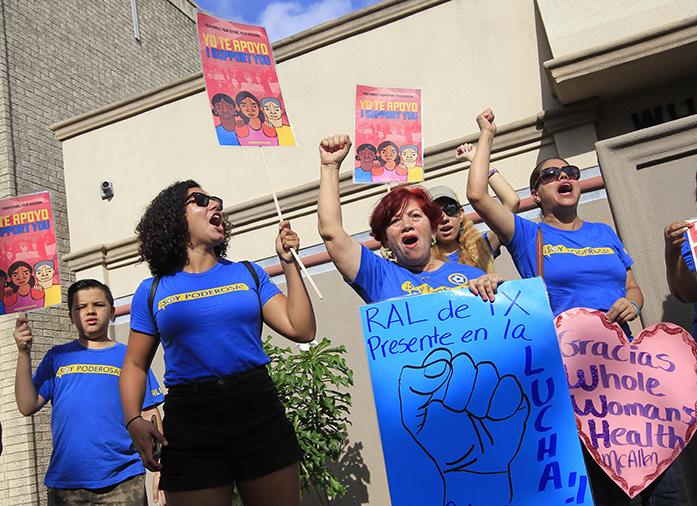On Monday, the Supreme Court dealt a great victory for pro-abortion rights activists by cutting down parts of a Texas law that would have complicated the process for women seeking abortions. The law would have pertained to access to abortion clinics and imposed restrictions that would have had little benefits in comparison with the impediments that would come about as a direct result of the law.
Often, regulations are put in place under the false pretense of ensuring a higher quality of medical treatment while serving a dual purpose of making the process more difficult for marginalized groups of women most likely to feel the immediate effects of such restrictions.
Although it has been decades since the Supreme Court has made such a definitive statement by virtue of a ruling when it comes to abortion such as this 5-3 decision, Monday’s decision carries the potential to set the trend for abortion-specific legislation in the future for other states. While the stipulations of the Texas law did not outright ban abortions, it is clear from the requirements that the veiled intention was to make the process for getting an abortion more arduous for both patients and medical practitioners. From trying to mandate all abortion clinics in the state adhere to the stringent qualifications of an ambulatory surgical center to necessitating admittance privileges for doctors performing abortions, the regulations that were sought after held little benefit to the patients it was meant to be assisting.
Regardless of one’s stance on abortion, it cannot be argued that the practice was deemed constitutional more than 40 years ago with the Supreme Court case Roe v. Wade. It is not the place of government on the state level to try to undermine the Supreme Court by way of disingenuous legislation, nor should the goal be to enact legislation that would adversely affect an already disenfranchised section of the population by targeting a constitutional right. It is one thing to disagree with the practice of abortion, and it is another to use underhanded methods to establish de facto opposition.
Arguably, the most positive aspect of this country is the people’s ability to decide the rules and conventions by which the rest of society must abide. However, with that freedom comes a responsibility to the population as a whole to respect the decisions made by the majority even if one does not individually agree, because the tacit understanding is that others do the same for the individual. We may never come to an entirely unanimous opinion on the issue of abortion, but difference in opinion is not justification for persecution by the way of duplicitous legislation.
Those on the Supreme Court who ruled in favor of striking down the Texan law should be commended not only for the progress made in terms of abortion rights but also in preventing state-level legislation from effectively chipping away at the integrity of the Constitution. If a decision made by the Supreme Court can effectively be overturned by the people, then the Supreme Court’s position as the highest arbitrative entity in the country becomes weaker. The court wields the power we as the population decide to grant it, and if we decide to detract from that very authority, the Supreme Court will become a hollow monolith reflecting our inability to govern ourselves in a truly democratic fashion.










